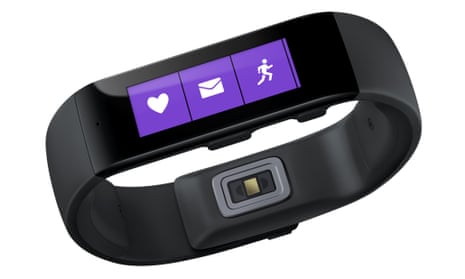Microsoft has been winning generally approving headlines for its Microsoft Band fitness tracker and accompanying Microsoft Health platform, since both were revealed – seemingly unintentionally at first – on Wednesday.
One of the key points about both hardware and software is their cross-platform nature: they won’t just be restricted to people with a Windows Phone smartphone and/or a computer running the Windows OS. They’ll also support Android, iOS and Mac.
Microsoft Health is also open to other devices and apps, with Jawbone’s Up and the apps MapMyFitness, MyFitnessPal and RunKeeper the first to be announced.
“We plan to have a regular cadence of Microsoft Health announcements including additional device and service partnerships, SDK availability and additional cross-platform applications and services,” blogged Microsoft’s Todd Holmdahl.
Integrating other fitness apps isn’t unusual: it’s an approach also being taken by Apple’s Health app and HealthKit API, as well as Google Fit, which also launched this week. Meanwhile, hardware makers including Fitbit, Withings and Jawbone have built a network of data-sharing deals to work with apps beyond their own.
Even so, Microsoft Health’s commitment to cross-platform is notable, if perhaps essential given the relatively small market share of Windows Phone. Do you think it gives the company’s new venture a healthy chance of attracting people? The comments section is open for your views.
Some other food for tech thought and discussion this morning:
- Former Android boss Andy Rubin is leaving Google, but his plans sound pretty interesting: according to the Wall Street Journal he’ll be “starting an incubator for startups interested in building technology hardware products”. It stresses that Rubin’s departure doesn’t mean Google is cooling on the robotics space. Probably a good thing, given all those acquisitions...
- Talking of robots, here’s a new study from scientists at Oregon State University, the Royal Veterinary College and others suggesting that roboticists can learn a lot from running birds. “We should ultimately be able to encode this understanding into legged robots so the robots can run with more speed and agility in rugged terrain.”
- More birds: Warblr is an intriguing Kickstarter crowdfunding campaign for “an audio recognition app for birdsong”. Basically it’s Shazam for your garden: trained on recordings of more than 80 British species, it enables you to record a bird’s song and then identify it.
- Music industry blog China Music Business has a good interview about intellectual property rights in China. “As China inevitably moves from a manufacturing economy to an innovation economy – meaning that companies need to innovate to stay ahead of competitors – you will see domestic companies that once infringed IP start to use the laws to protect their IP...”
- Finally, CNN has been talking to Humanetics, which makes crash test dummies, about its work on a new obese model. “Obese people are 78% more likely to die in a crash. The reason is the way we get fat. We get fat in our middle range. And we get out of position in a typical seat.” The company is also working on a model that can reflect age as well as size.
What do you think of these stories, and what else have you seen today that you think fellow Guardian Tech readers would enjoy chatting about? The discussion is open.

Comments (…)
Sign in or create your Guardian account to join the discussion